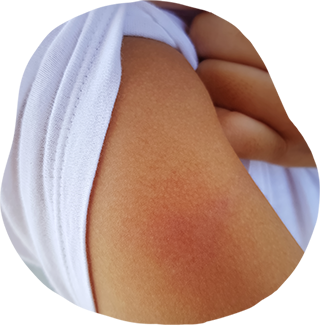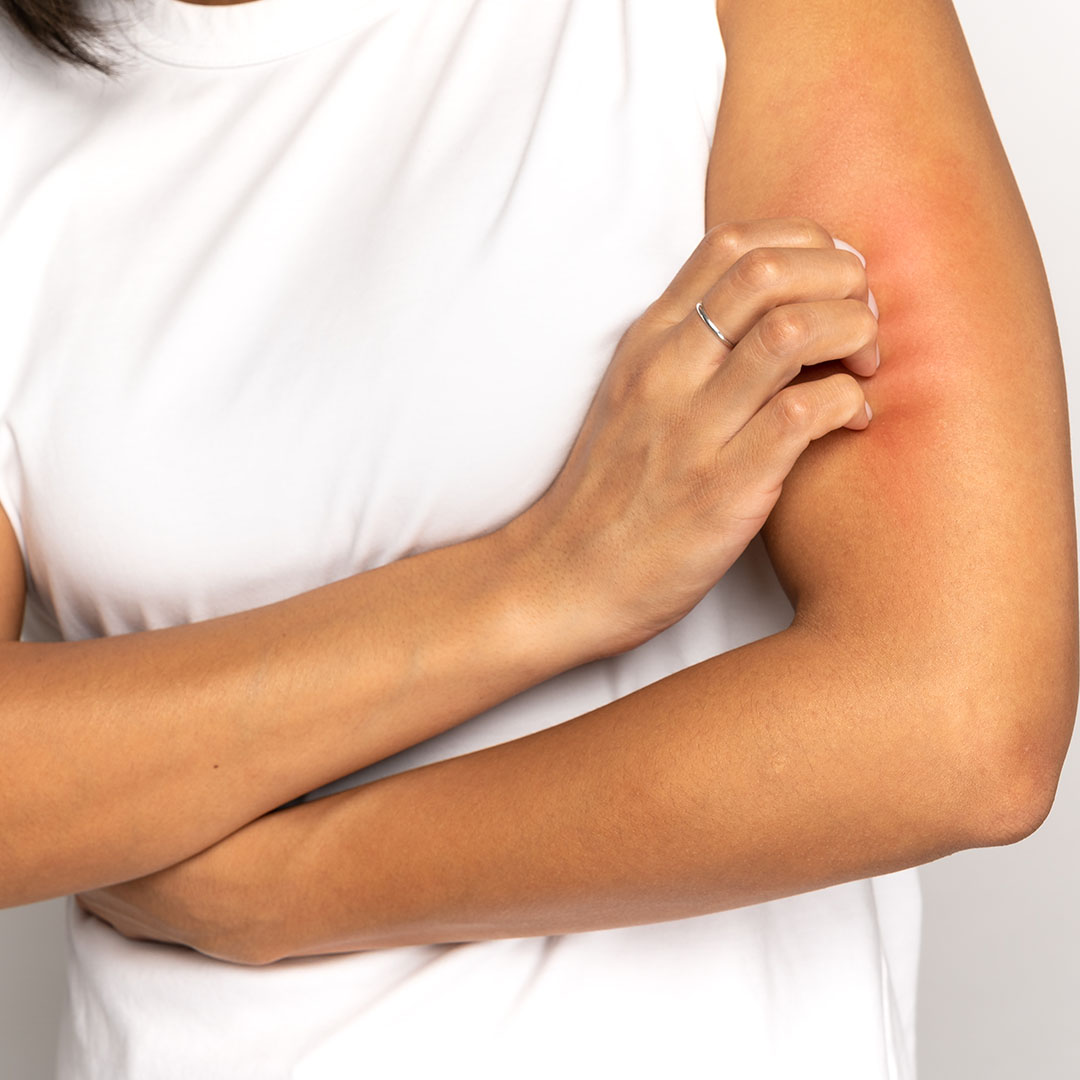What is Itchy Skin?
Itchy skin, also known as pruritus, is a common condition that can be caused by a variety of factors, including dry skin, allergies, infections, and underlying medical conditions.
Treatment for itchy skin typically depends on the underlying cause of the itching. Some common treatments for itchy skin include:
Moisturizing: Applying a moisturizer to the skin can help relieve itching caused by dry skin.
Anti-itch creams: Over-the-counter creams, such as hydrocortisone cream, can help relieve itching.
Antihistamines: Over-the-counter or prescription antihistamines, such as diphenhydramine (Benadryl) or loratadine (Claritin), can help relieve itching caused by allergies.
Cool compresses: Applying a cool compress, such as a cloth dampened with cold water, can help relieve itching.
Avoiding triggers: If a specific trigger, such as a certain clothing fabric or soap, is identified as causing the itching, avoiding that trigger can help prevent future outbreaks of itching.
If the itching is severe, persistent, or accompanied by other symptoms, such as a rash or swelling, it is important to see a doctor for a proper diagnosis and treatment. In some cases, underlying medical conditions, such as liver or kidney disease, can cause itching, and prompt medical attention is needed to address these conditions.
Skin itching, can be caused by a variety of factors, including:
- Dry skin: Dry skin can cause itching, as the skin loses moisture and becomes dehydrated.
- Allergies: Allergic reactions to substances such as pollen, food, or medications can cause itching, redness, and swelling of the skin.
- Skin conditions: Certain skin conditions, such as eczema, psoriasis, and dermatitis, can cause itching, as well as redness, scaling, and dryness of the skin.
- Infections: Skin infections, such as scabies and impetigo, can cause itching, as well as redness, swelling, and blisters.
- Internal medical conditions: Certain internal medical conditions, such as liver or kidney disease, can cause itching, as well as fatigue, jaundice, and abdominal pain.
- Nerve disorders: Nerve disorders, such as peripheral neuropathy, can cause itching, as well as numbness, tingling, and burning sensations in the skin.
Home remedies for Itching
If you are experiencing itching, there are some home care measures that can help provide relief:
Moisturize: Apply a moisturizer to the skin to help relieve itching caused by dry skin.
Use an anti-itch cream: Over-the-counter creams, such as hydrocortisone cream, can help relieve itching.
Take a cool bath: Adding oatmeal or baking soda to a cool bath can help soothe itchy skin.
Use a cool compress: Applying a cool compress, such as a cloth dampened with cold water, can help relieve itching.
Avoid scratching: Scratching the skin can make itching worse and can also cause damage to the skin.
Wear loose-fitting clothing: Wearing loose-fitting clothing can help reduce friction and irritation on the skin, which can make itching worse.
Avoid irritants: Avoid substances and activities that irritate the skin, such as hot showers, certain soaps, and certain fabrics.
If the itching is severe, persistent, or accompanied by other symptoms, such as a rash or swelling, it is important to see a doctor for a proper diagnosis and treatment. Your doctor may also perform tests to determine the underlying cause of your itching and develop a personalized treatment plan to manage it.





